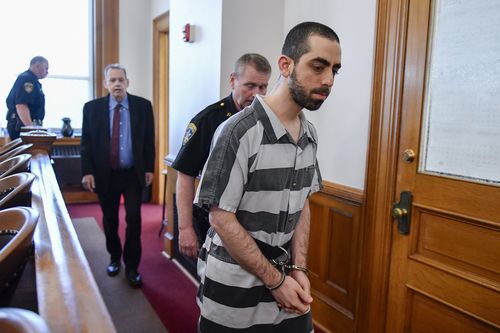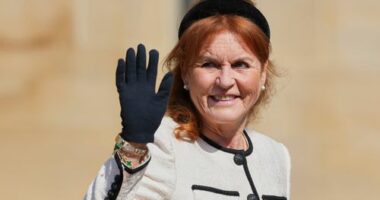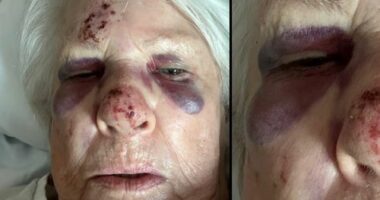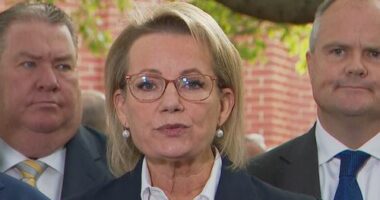Share this @internewscast.com
Hadi Matar, 27, stood quietly as the judge pronounced the sentence. He did not deny attacking Rushdie, and when he was invited to address the court before being sentenced, Matar got in a few last insults at the writer. He said he believed in freedom of speech but called Rushdie “a hypocrite”.
“Salman Rushdie wants to disrespect other people,” said Matar, clad in white-striped jail clothing and wearing handcuffs. “He wants to be a bully, he wants to bully other people. I don’t agree with that.”

The judge also gave Matar a seven-year term for wounding a man who was on stage with Rushdie, though that time will run concurrently to the other sentence.
After the attack, Rushdie spent 17 days at a Pennsylvania hospital and more than three weeks at a New York City rehabilitation centre. The author of Midnight’s Children, The Moor’s Last Sigh and Victory City detailed his recovery in his 2024 memoir, Knife.
Matar’s lawyer, Nathaniel Barone, had asked the judge for a sentence of around 12 years, citing his lack of a previous criminal record.
Schmidt, the prosecutor, said Matar deserved the maximum sentence of 25 years, saying Matar “designed this attack so that he could inflict the most amount of damage, not just upon Mr Rushdie, but upon this community, upon the 1400 people who were there to watch it”.

Rock band’s cover causes so much outrage FBI investigates lyrics
Matar next faces a federal trial on terrorism-related charges. While the first trial focused mostly on the details of the knife attack itself, the next one is expected to delve into the more complicated issue of motive. He has pleaded not guilty. If convicted of the federal charges, Matar faces a maximum penalty of life in prison.
Authorities said Matar, a US citizen, was attempting to carry out a decades-old fatwa, or edict, calling for Rushdie’s death when he travelled from his home in Fairview, New Jersey, to target Rushdie at the summer retreat about 110 kilometres south-west of Buffalo.
Matar believed the fatwa, first issued in 1989, was backed by the Lebanon-based militant group Hezbollah and endorsed in a 2006 speech by the group’s secretary-general, Hassan Nasrallah, according to federal prosecutors.
Iranian leader Ayatollah Ruhollah Khomeini issued the fatwa after publication of Rushdie’s novel, The Satanic Verses, which some Muslims consider blasphemous. Rushdie spent years in hiding, but after Iran announced it would not enforce the decree he travelled freely over the past quarter century.











